Facts & figures
Our alumni - A balanced Mixture
Diversity
Every year CIPSEM is responsible for the organization and implementation of four courses. Each course consists of 21 scholarship holders quite often originating from 21 different countries and is therefore featuring an extraordinary ethnical and cultural diversity.

Continental distribution of course participants 1977-2016. (N=2188)
This diversity is well intended and considered in the compilation of teaching contents as it offers the opportunity for the participants to master - virtually as a sideline - crucial intercultural competencies.
By this time our database counts over 2100 alumni from 138 countries all over the world. With 44% Asians make up the highest share, followed by Africans with 33%. 20% of our participants come from South and Central America. These figures represent roughly the population proportions of the different continents verifying a balanced selection process.
Gender equality
To " Ensure women’s full and effective participation and equal opportunities for leadership at all levels of decisionmaking in political, economic and public life"is one of the targets of the fifth Sustainable Development Goal (SDG) "Gender equality" adopted at the United Nations Sustainable Development Summit in 2015.
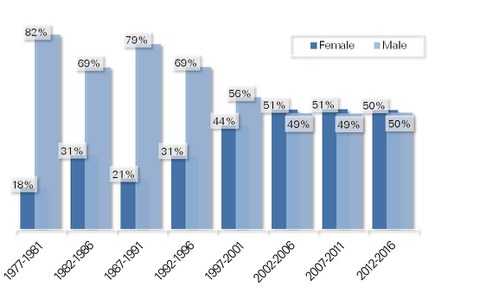
Gender ratio of the participants in the courses between 1977 and 2016
Postgraduate training is a founding stone for professional advancement. Equal access to education is therefore essential for women's representation in decision-making processes. Even though CIPSEM is still receiving about twice as many applications from male candidates, the gender ratio of the selected participants is fairly balanced since 20 years and has been even precisely equal in the last five years. In this way the course program is contributing to the empowerment of women in emerging and developing countries and in extension also to sustainable development.
Alumni Survey
Do our courses contribute to our alumni's career advancement? Which specific impacts on their careers do our alumni perceive as direct consequences of their training at CIPSEM and how do our alumni's careers develop after the course? Since 2014 we interview the scholarship holders of short and long courses five years ago and ten years ago via an online survey. The main goal is to learn how the alumni evaluate the course contents retrospectively after they spend some time back in their home countries and to see if the transfered knowledge is practicable and applicable or if adjustments have to be made. Furthermore we are also interested in our alumni's professional achievements. Do our courses help in the improvement of environmental management techniques and methods in developing and emerging countries? Which difficulties do our alumni face while implementing their newly gained knowledge and expertise? The graphs in this section give an insight in the results of our alumni survey.
Course benefits
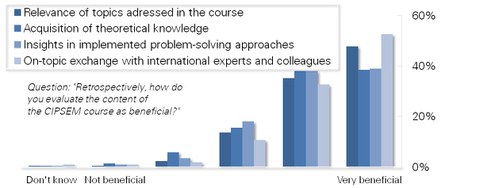
Evaluation of course contents by CIPSEM alumni of years 2005, 2006, 2007, 2010, 2011 and 2012 (n=205)
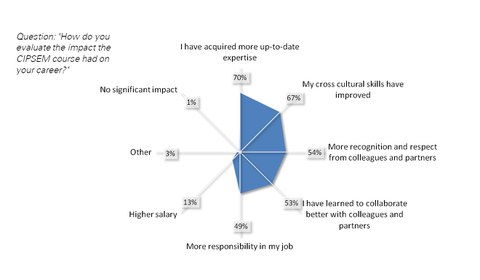
Which changes in their careers do alumni ascribe to the course program? (N = 205; multiple answers possible)
______________________________________________________________________
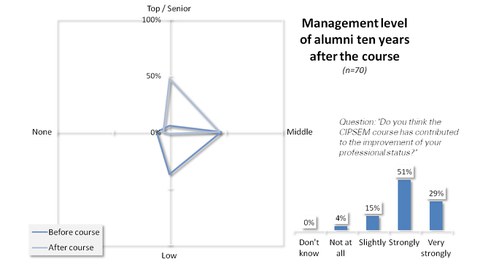
Effects of the course program on participants' career levels.
______________________________________________________________________
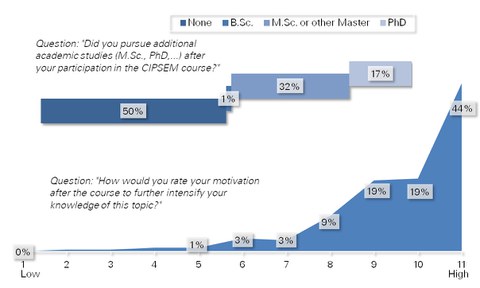
Course participants' motivation for further academic education after the course (n=205)
